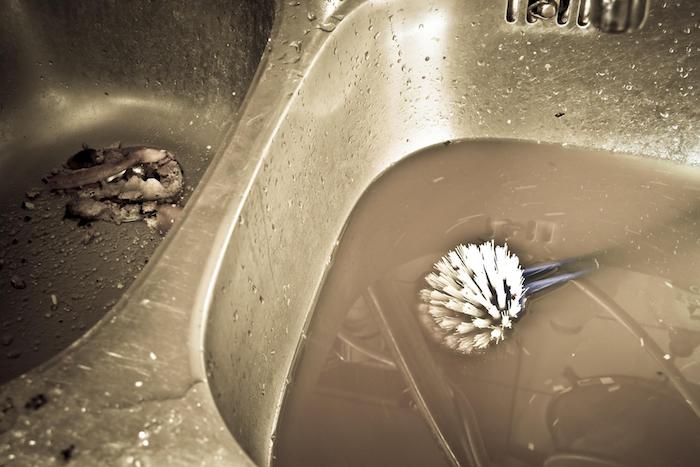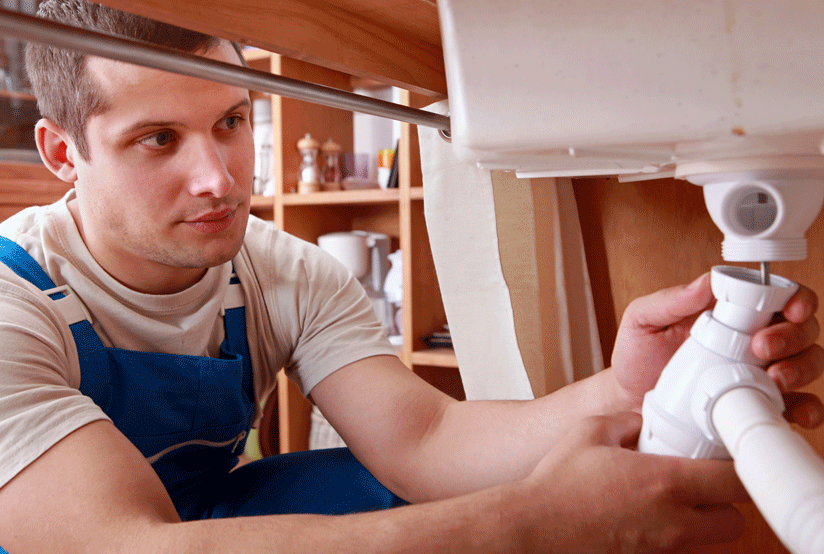Reliable Techniques For Fixing A Slow-Draining Sink
Reliable Techniques For Fixing A Slow-Draining Sink
Blog Article
Do you find yourself in search of ideas on How to Fix a Slow Draining Sink?

Introduction
We have actually all existed: You're cleaning your teeth or cleaning your hands, and you see the water merging in the sink. Rather than quickly swirling down the tubes, it lingers, turning your once-refreshing early morning routine into a miniature swamp scene. A slow-draining sink isn't just bothersome; it's frequently a sign of bigger pipes issues lurking underneath the surface area. The good news is that most slow-draining sinks can be taken care of with a little know-how, a few basic tools, and some patience. All set to tackle this task head-on? Allow's roll up our sleeves and dive right in.
Comprehending the Root Causes Of a Slow-Draining Sink
Prior to you begin poking around in your pipes, it aids to recognize what could be causing the slowdown. Understanding the origin makes it easier to pick the best fix.
Tools and Products You'll Need
The right devices make all the distinction. Thankfully, you won't need a completely stocked plumbing technician's van to finish the job.
Step-by-Step Overview to Repairing a Slow-Draining Sink
Now, allow's enter the nitty-gritty. This step-by-step process will certainly assist you through basic strategies to recover your sink's drain.
Step 1: Eliminate and Clean the Stopper
Typically, the stopper (that tiny plug you lower to obstruct water) is the first perpetrator. Remove it very carefully and wipe any kind of hair or substance trapped around its base. Wash it extensively prior to placing it back in position.
Action 2: Make Use Of a Plunger to Dislodge Debris
Got that bettor ready? Position it over the drainpipe and offer it a couple of company pumps. The idea is to produce suction that can loosen any kind of clog. If you see little bits of debris drifting up, you get on the right track.
Action 3: Attempt a Drainpipe Snake or Cable Wall Mount
If the bettor does not do the trick, it's time to bring out the drainpipe serpent. Carefully feed it into the drain and spin as you go. You could really feel some resistance-- that's most likely the obstruction. Maintain turning and pulling till you get rid of the obstruction. If you do not have a drain serpent, a corrected wire hanger can operate in a pinch.
Step 4: Apply a Do It Yourself Drain Cleanser
An all-natural cleaner made from baking soft drink and vinegar can break down recurring gunk. Put half a cup of cooking soda into the drainpipe, complied with by half a mug of vinegar. Allow it fizz for around 15 mins, then flush with warm water. This chain reaction usually does marvels for minor obstructions.
Step 5: Rebuild and Test the Sink
Placed whatever back together and run the faucet. Does the water now swirl down the drain at a reputable speed? If yes, provide yourself a pat on the back. If not, do not despair-- there are still a few more tricks up your sleeve.
Necessary Devices for DIY Services
A plunger is your go-to starting factor. A small, sink-sized plunger produces suction that can dislodge small blockages. For even more relentless clogs, a drainpipe snake (often called a plumbing professional's auger) functions marvels. A set of gloves, a flashlight, and perhaps a set of safety goggles are likewise useful.
Recommended Cleaning Solutions
Mild meal soap and hot water can assist break down oily accumulation. A mixture of cooking soda and vinegar is a tried and true natural home remedy, and enzymatic cleaners supply an even more eco-friendly method. Maintain chemical drain cleaners as a last resource, as they can be severe on your pipes.
Typical Culprits Behind Slow Drain
So, what's blocking things up? Normally, it's a combination of day-to-day particles-- assume hair, soap residue, tooth paste residue, and leftover food particles. Over time, these little bits gather and hold on to the pipe wall surfaces, gradually tightening the flow and making it harder for water to go through. Sometimes, mineral deposits from difficult water can likewise contribute to the gunk, creating the excellent tornado for stubborn blockages.
When is it Time to Act?
If you notice the water draining pipes slower than common, it's a great concept to intervene faster rather than later. Waiting also long could cause finish blockages, undesirable odors, and even pipe damages. If the water takes greater than a few secs to remove after switching off the faucet, consider it a warning and get ready to place on your do it yourself hat.
Safety First: Preventative Measures and Preparations
Prior to you launch into unclogging setting, think of safety. You're managing potentially unclean water and particles, so slip on a set of gloves. If you're using chemical cleaners, make sure the space is well-ventilated and comply with the directions on the label.
Safety Equipment and Office Setup
Lay down some old towels or dustcloths around the sink area to catch dashes. Remove any type of items that could enter your way, like soap dispensers or tooth brush holders. See to it you have excellent illumination-- grab a flashlight if required.
Alternative Techniques for Stubborn Clogs
Not all clogs are produced equivalent. If your sink still refuses to comply, consider these alternate remedies.
Baking Soda and Vinegar Technique
We currently discussed this, but it deserves keeping in mind once again. This mild, environment-friendly approach is safer than chemical cleaners and commonly fairly effective.
Enzymatic Drainpipe Cleansers
Enzyme-based cleansers utilize natural microorganisms to absorb organic matter. They're an outstanding option if you're seeking to prevent rough chemicals. Simply bear in mind, they may take a bit longer to function their magic.
Chemical Drainpipe Cleaners: Pros and Cons
Chemical cleansers can blast through tough clogs fast, yet they're not without disadvantages. They can generate warmth and fumes, damages pipes if made use of excessively, and pose ecological risks. Utilize them sparingly, and always comply with the directions very carefully.
Preventive Measures to Keep Your Sink Flowing
Avoidance is the very best treatment. By taking on a few basic habits, you can maintain your sink from reducing to begin with.
Normal Cleansing Practices
Wipe down the sink basin and component location frequently. Eliminate hair or food fragments prior to they have a possibility to wash down the drain.
Avoiding Unsafe Compounds Down The Tubes
Think twice before disposing coffee premises, oil, or fibrous vegetable scraps down the sink. These culprits hold on to pipe walls, developing obstructions gradually.
Routine Upkeep Checks
Arrange a fast month-to-month evaluation. Run hot water with the sink for a few minutes, taking note of the circulation. If it seems slow-moving, act fast prior to it becomes a full-blown blockage.
When to Call an Expert Plumbing
Often, regardless of just how tough you try, that clog just will not move. That's when it's time to generate the pros.
Signs That Suggest a Much More Significant Issue
If your sink drains slowly despite several efforts, or if you see water backing up in other fixtures (like your shower or commode), you might have a much more serious pipes issue lurking deeper in the system.
Balancing DIY Efforts with Professional Assistance
While DIY can save you money and offer a sense of success, there's no embarassment in calling a specialist. A specialist plumber can analyze your whole plumbing setup, ensuring there's no underlying damage or long-term trouble that can cost you much more down the road.
Contrasting Expenses and Long-Term Solutions
Before choosing, think about the big picture. A low-cost, quick fix could fix the problem momentarily, however buying a more long-term solution might conserve you cash and stress over time.
Considering the Expenses of DIY vs. Specialist Repairs
DIY solutions typically cost little bit greater than the price of a plunger or a bottle of baking soft drink. Specialist services, on the other hand, come with a price tag however might stop repetitive problems and expensive fixings later on.
Purchasing Quality Fixtures and Upgrades
If your sink's design adds to constant blockages, it might be worth upgrading to higher-quality components or altering the pipes design. Consider this an investment in your home's capability and convenience.
Final thought
A slow-draining sink can seem like a minor irritability, yet it's usually an indication that your plumbing needs a little TLC. By understanding the source, employing the right devices and techniques, and dedicating to simple safety nets, you can keep your sink streaming freely. And when all else stops working, never ever think twice to call in a professional-- your home's pipes deserves the financial investment in treatment and upkeep.
Three Common Ways to Fix a Slow Drain
Baking Soda Method
Boil a full pot of water. Measure out cup of baking soda and pour it down the drain. Then take cup of the magical cleansing substance known as white vinegar and drop that down there too. Allow the mixture to fizz in the drain for five minutes as the vinegar and baking soda combine. Now dump in that whole pot of boiling water. This combination of cleaning substances should clear out anything that is causing your sink to drain slowly. If it doesn t...
Zip-It
If the baking soda method doesn t clear out your drain, it may be because a significant amount of hair and/or other debris has collected there and you need to remove it. Purchase a Zip-It tool at any home improvement or hardware store and insert it into your drain. It will catch any collected hair or debris that s blocking the flow of water. Pull it out. If it s got a big clump of hair, etc. on the end, you ve probably got your culprit.
Drain Cleaner
If these methods don t work, there is the standard drain cleaner that you can also buy in a hardware store or even your local grocery store. It s better if you can use a household solution, but these drain cleaners often work in a pinch. They re very simple to use. You generally just dump them in your drain and wait. If even this method is not effective, it may be time to call the plumber.
https://www.mrrooter.com/oneida/about-us/blog/2017/july/three-common-ways-to-fix-a-slow-drain/

Do you appreciate reading up on How to Fix a Slow Draining Sink? Try leaving a remark further down. We would be glad to know your thinking about this piece. We are looking forward that you visit us again later on. For those who appreciated our blog post please don't forget to share it. I cherish your readership.
Call Today Report this page